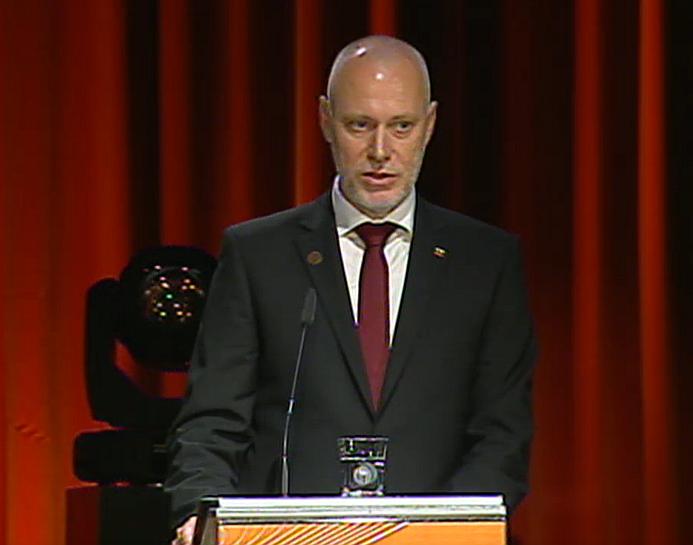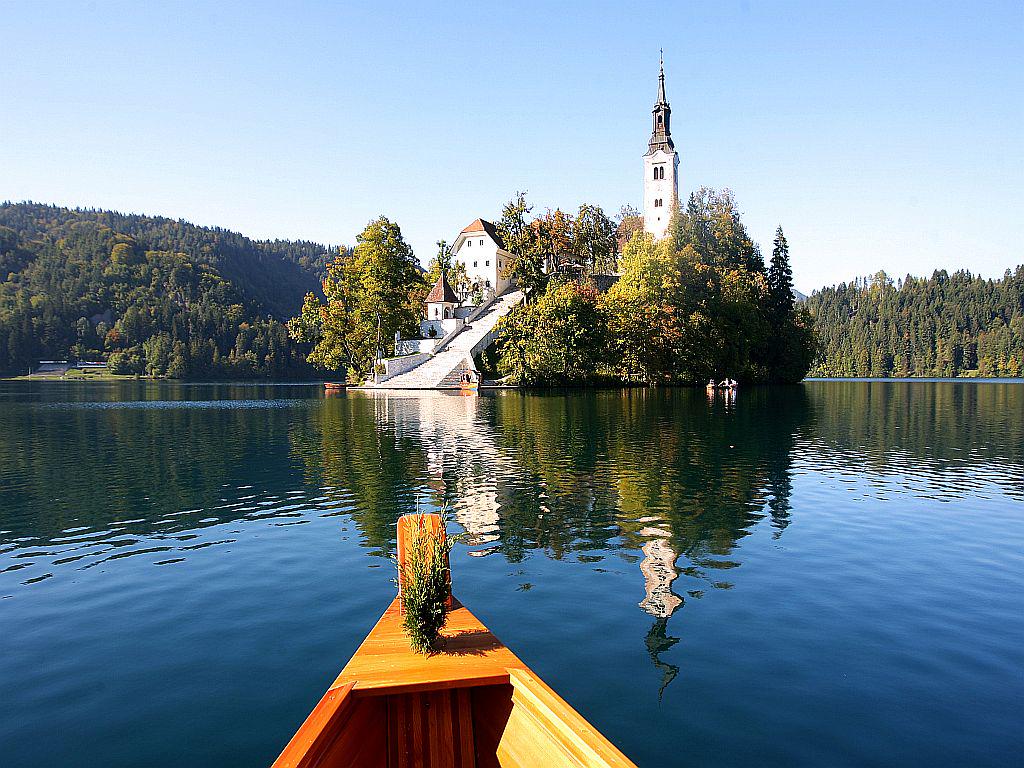

The ninth Bled Strategic Forum started with an opening ceremony. Running under the title "The Power of Trust" it will unite more than 500 participants from 65 countries. This important political event has already established itself within the region, as an important and attention-grabbing meeting point for politicians, economists, scientists, journalists, and members of the academic community. A number of foreign ministers and other important guests from the region and other parts of the world will participate. This year the debates will be mostly focused on leadership, global safety, and problems of the young people in the time of economic crisis.
The new president of the National Assembly Milan Brglez was the first to address the participants. He spoke about the important role of the Bled Strategic Forum, which has been traditionally monitoring the events, and reflecting the issues within the international community, and this year its purpose remains the same. "The 20th century is considered the century of extraordinary development, but in the 21st century we are also witnessing tectonic movements. The fast growing economies are transferring the centre of the world events to the other part of the world, therefore intra-cultural contacts are gaining importance," Brglez said.
"Capital became the main director of the events"
He added that countries need to adapt and change constantly, while mutual relations of power and relationships among the main actors have turned upside down. "Capital became the main director of the events, but the question arises of the level of sovereignity left to the countries, and of their leading position within the international community," said the new president of the National Assembly. He stressed that the states must take on care for the welfare of the society, and the wellbeing of people. According to him we need a new global order which would prevent excesses like the last financial, and economic crisis. He also emphasized the importance of parliament as legislators, which are becoming more and more essential and indispensable frameworks to help prevent financial excesses, the consequences of which can be still felt.
"The crisis has shaken the foundations of trust within the countries, and among the states, therefore re-establishing trust will be of crucial importance. Yet, it is easier to lose trust than to gain it, or to restore it," Brglez said, and thus touched the main panel of the forum on leadership philosophy. He stressed that good leadership includes care for the welfare of the society, and protection of basic rights. "The new leadership requires faster and proactive actions, and timely reactions to outside events. Dealing with challenges includes looking for solutions, and planning," Brglez continued.
"Trust is a basic force which makes everything possible"
The next speaker was the departing minister of foreign affairs Karl Erjavec. He said that the purpose of BSF is to encourage strategic dialogue and offer a platform for fruitful discussions. "Globalisation is connecting people of different cultures, therefore the level of trust in modern economies must be very high. Without trust no crucial challenges can be discussed; in order to find solutions at the global level we have to trust the leaders," Erjavec said. He said that this year's BSF will try to prove that trust, in spite of globalisation, technology and other modern challenges, remains the basic force which makes everything possible. "Only trust will allow us to build a strong, successful and safe world for more than seven billion people," he added.
"A good leader creates public opinion"
The participants of the first panel on leadership philosophy were addressed by the president of the republic Borut Pahor, who presented his view on good leadership. "The basic condition for a capable leader is his awareness of what he wants to achieve, and how to do it. Political leadership is based on the will for change, and reluctance to conforming to the existing circumstances," Pahor said, and repeated that a good leader actively changes people's will and desires through his own judgment. Yet a good leader respects people, as only in that case he will be able to make them change their opinion.
Pahor expressed his belief that a democratic society, in order to move forward, must allow to the young people to express their opinions, and allow those most talented to develop into political leaders, with the hope that they will find inspiration in the values of peace, safety, democracy, and human rights. "It is no guarantee by itself, but it means an extraordinary opportunity for a better future," Pahor concluded.

































































